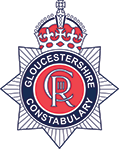Wartime duties of the police
The British Police had a difficult job to do during the Second World War. In addition to their usual duties of keeping the peace and upholding the laws of the land, a new set of regulations were brought in for the duration of the war which could be amended and up-dated by the authorities as the need arose. Information therefore had to be devolved down to the ranks on a daily basis. The peacetime duties of law and order were also made more difficult due to blackout and petrol rationing and criminals saw wartime as an opportunity, resulting in a concomitant increase in the crime rate.
Police Orders were daily instructions issued by the Commissioner of the Police to his men during war time. Printed copies were distributed to each police station. They were a particularly important way of passing on information concerning the new regulations and covered a range of topics from the arrangements for public meetings or demonstrations, to commendations, promotions and disciplinary matters.
Additional duties
- Working closely with Civil Defence workers – Air Raid Precaution (ARP) wardens, Home Guard and Firemen, during and after air raids.
- Sounding of sirens – and reporting for duty at the sounding of the siren
- Enforcing the wartime blackout
- Handling reports of bombs and emergency communications via direct-line police boxes during raids
- Assisting the fire brigade in fire-fighting and rescuing casualties (during the first two years of the war only)
- Prevention of looting from bomb damaged buildings
- Prevention of black-market trading
- Sharing responsibility with the army for recovering escaped prisoners of war.
- Capturing deserting soldiers
- Protecting key local installations as part of national security
- Monitoring foreigners or “aliens” in case they were spies or saboteurs.
- Supervising the public with respect to gas masks – issue, ensuring correct fitting and that they were carried at all times.
- Visiting schools – to inform children on gas drills and the dangers of bombs and shrapnel.
- Using wireless transmitters – in addition to the normal switchboard and police box telephones.
Police numbers
Anticipating the outbreak of war and the loss of large numbers of police to the armed services, the police force sought to increase its numbers in several different ways from the following sources:
- First Police Reserve – were police pensioners who had been kept on a small retainer and were re-engaged and paid a normal salary. (The retirement of officers already in service was also delayed.)
- War Reserve Police – men who were under the age of 30 in the police reserve were called up to the force for temporary war service. These were paid members of the force and many were later called up to serve with the armed forces.
- Women’s Auxiliary Police Corps – women were mainly employed in clerical and chauffeuring duties, for which they received payment.
- Special constables – were men who were unpaid, part-time volunteers who for reasons of age or reserved occupation were precluded from being called up for war service.
- Police Auxiliary Messengers – boys between the ages of 14 and 18 were recruited as volunteers to assist the police with communications by delivering messages on foot or on bicycle.
References:
http://www.wartimememories.co.uk/police.html
http://www.open.ac.uk/Arts/history-from-police-archives/PolCit/polww2.html
https://en.m.wikipedia.org/wiki/War_reserve_constable
https://www.oldpolicecellsmuseum.org.uk/content/history/police_history/police_specials
Weinburger B. The Best Police Force in the World. University Press Cambridge 1995. Chapter 7: Policing in War time








No Comments
Add a comment about this page